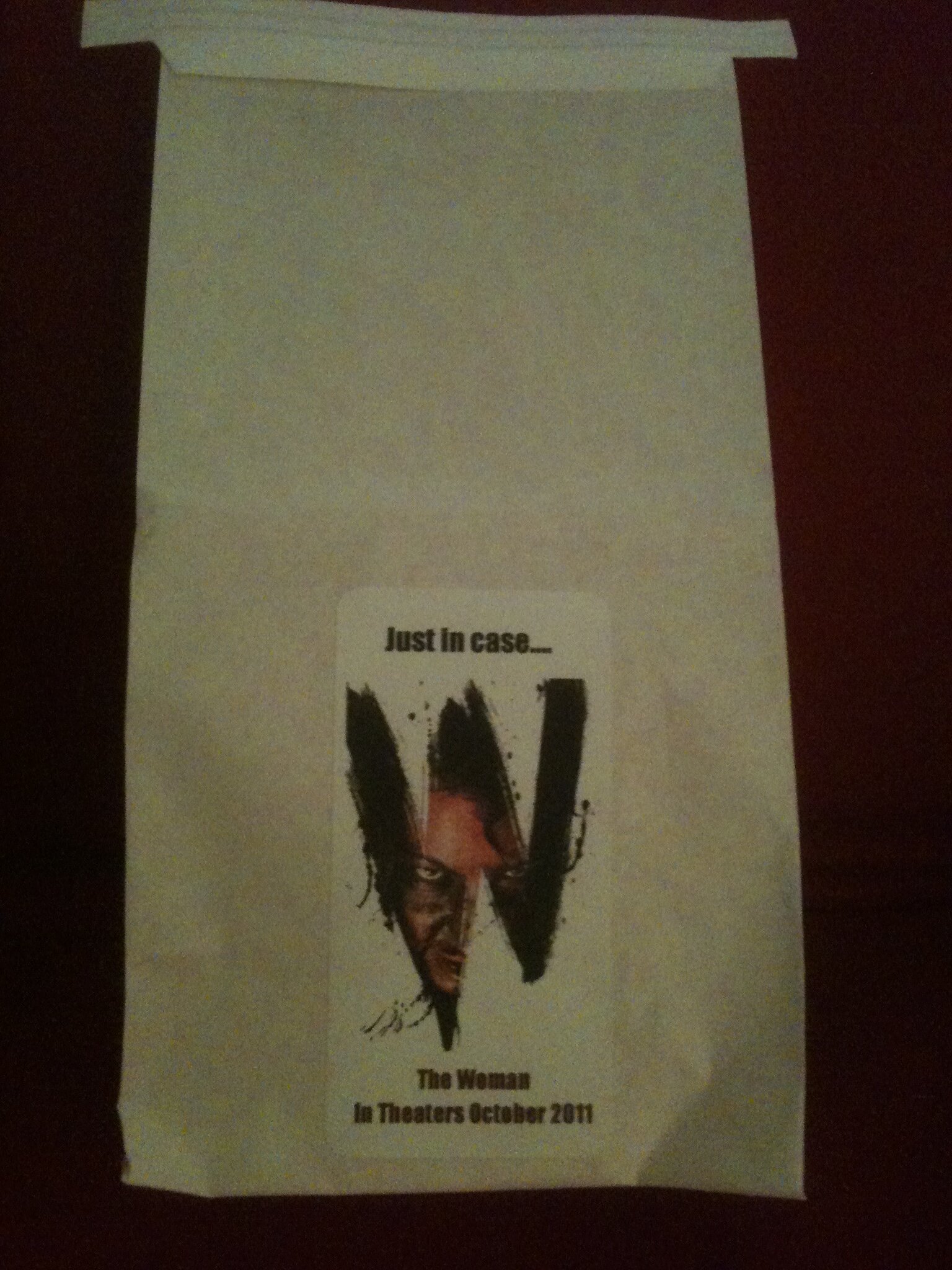
If you’re looking for a well-made, well-acted exploitation-horror movie engineered by someone absolutely intent on repulsing and unnerving you, get thee to the AMCs at Pacific Place and Southcenter this weekend to see The Woman, cult director Lucky McKee’s newest feature. Whether that statement’s a recommendation or condemnation rests squarely in the eyes of the beholder; such is the nature of the strange and frequently repugnant beast to which McKee’s given birth.
The Woman follows the saga of Chris Cleek (Sean Bridgers), a lawyer who kidnaps a wild-eyed feral woman (Pollyanna MacIntosh) wandering the woods around his home. Cleek imprisons the woman in his cellar, ostensibly to program/civilize her, and he enlists his family to help. Soon things take a really deranged turn, thanks in large part to the base impulses that surface in some of the woman’s captors.
McKee’s movie has touched nerves, and then some, in the last four months. The Woman‘s first Sundance screening reputedly inspired vomiting and fainting spells from audience members, and one Sundance filmgoer vaulted into an on-camera screed against the movie that’s damn near gone viral. Such controversy ain’t new, of course (people fainted–and nurses were stationed–in theaters during the 1931 Frankenstein‘s original release, folks). But the fetid aroma of forbidden cinematic fruit hasn’t been this overpowering in a good few years.
So is the movie at the center of this torrent of hubbub any good? Well, yes and no.
Technically and visually, The Woman‘s made at a level way beyond your average grotty grindhouse feature. McKee actually takes care to build suspense and atmosphere at first, unfolding the movie’s first third at a deliberate pace that gradually adds layers of uneasiness while Cleek’s ugly side surfaces. The director also elicits a couple of genuinely great performances from Angela Bettis as Cleek’s worn-down and abused wife; and from Bridgers, whose psychotic Ward-Cleaver earnestness suggests Will Ferrell gone seriously depraved. As sick as The Woman sometimes gets, McKee’s no misogynist: he’s much more concerned with exposing the sickness living in his male characters than he is with extracting titillation from the suffering of his female subjects.
That said, McKee sells his characters short with a screenplay that sketches out their motivations and backgrounds far too vaguely. The director hurtles unpleasant things at the camera with childish impulsiveness, and the movie’s absurd final act loses its shit like a tourist in Mexico battling Montezuma’s Revenge. Lucky McKee’s new movie ain’t dull for a split-second, but when a genre flick presents these kinds of provocative ideas without thinking them through to the end, it can’t help but feel like a missed opportunity; a movie that could’ve been as truly great as it is unsettling.
The Woman also plays The Grand Illusion November 25.
